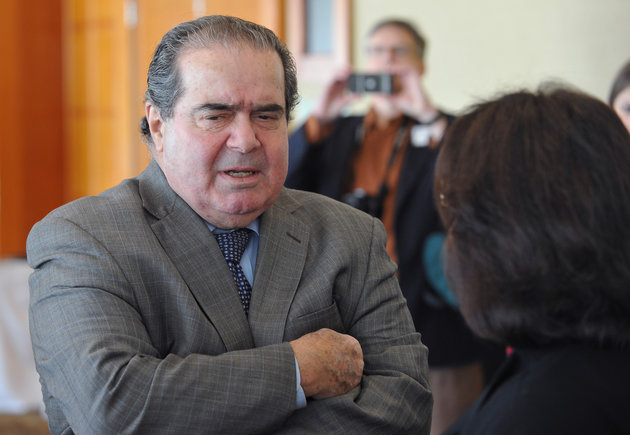-
Tips for becoming a good boxer - November 6, 2020
-
7 expert tips for making your hens night a memorable one - November 6, 2020
-
5 reasons to host your Christmas party on a cruise boat - November 6, 2020
-
What to do when you’re charged with a crime - November 6, 2020
-
Should you get one or multiple dogs? Here’s all you need to know - November 3, 2020
-
A Guide: How to Build Your Very Own Magic Mirror - February 14, 2019
-
Our Top Inspirational Baseball Stars - November 24, 2018
-
Five Tech Tools That Will Help You Turn Your Blog into a Business - November 24, 2018
-
How to Indulge on Vacation without Expanding Your Waist - November 9, 2018
-
5 Strategies for Businesses to Appeal to Today’s Increasingly Mobile-Crazed Customers - November 9, 2018
Labor unions face tough challenge at the Supreme Court
The Supreme Court on Monday will consider a legal challenge on a 1977 ruling in a case against the California Teachers Association, the state’s largest teachers union, which could threaten the financial strength of public-employee unions nationwide. Because public sector union bargaining involves government spending priorities and whatnot, the plaintiffs say, it is political, and the decision to support it with fees should be purely a choice, rather than a requirement-even if someone is reaping the benefits of the contract the union negotiated for them. The case: Friedrichs v. California Teachers Association. The New York Times’ Supreme Court correspondent Adam Liptak reported that the a majority of the court seemed ready to agree with them in oral arguments on Monday, and a case in favor of the teachers could end up being one of the most consequential blows against organized labor in decades. In California and other states, public sector employees who choose not to belong to unions are nevertheless required to pay fees that help defray the costs of collective bargaining from which they benefit. More than half of union-represented workers in the public sector are women. They are asking the Supreme Court to overturn a 1977 case, Abood v. Detroit Board of Education, that upheld agency fees.
Advertisement
The nation’s 25 right-to-work states already bar public employee unions from requiring membership or collecting agency fees, but those unions remain reasonably robust anyway.
Justice Stephen Breyer said overturning Abood would also require the court to overrule related cases, such as those on mandatory student fees at public universities, calling that “quite a big deal”.
California’s teacher unions and their national affiliates have painted the case as an attempt to crush unions and their collective bargaining power. The union wouldn’t listen to her and insisted on bargaining for pay raises despite the fact that it would mean good teachers would be laid off and everybody else would get increased class sizes.
“The problem is that everything that is collectively bargained with the government is within the political sphere, nearly by definition”, Justice Antonin Scalia said. In Friedrich’s view, those mandatory fees violate her First Amendment rights by forcing her to associate herself with a political agenda that she has no desire to be associated with.
Collective bargaining, Justice Anthony M. Kennedy said, is inherently political when the government is the employer, and issues like merit pay, promotions and classroom size are subject to negotiation.
If it is overturned the decision could trickle down to all public sector unions, meaning no one would be required to pay any dues whatsoever but the union would still be forced to represent every employee. The court did rule that nonmembers can not be charged a fee to cover for a union’s political activity. In California and other states, though, the law compels the union to represent everyone – members and non-members alike – in collective bargaining.
A decision in the case is expected by late June. She says these teachers were loved by parents, their colleagues and even administrators.
“Without agency fee arrangements, unions have an incentive to take hardline positions and pick battles to constantly prove their mettle to their members”, the brief argues.
Advertisement
Roberts said that by its very nature, everything a government-employee union does is political.





























